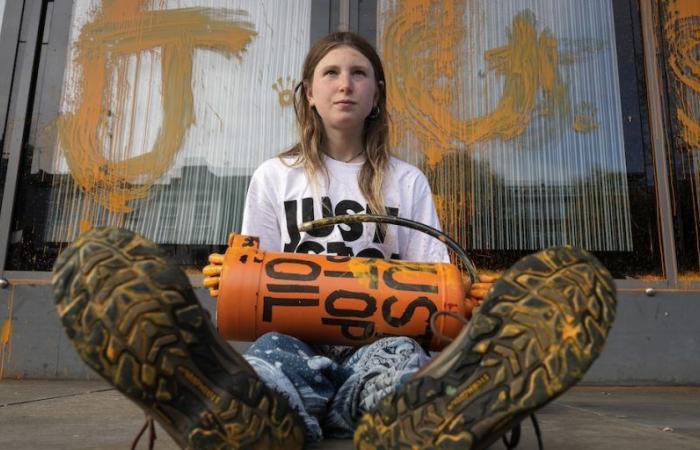Loading player
The United Nations Development Program (UNDP) has published the results of the Peoples’ Climate Vote 2024, the largest survey ever conducted by the UN on the topic of climate change: more than 75 thousand people from 77 countries who speak 87 different languages.
According to global aggregate results, the vast majority of them are dissatisfied with the way governments are managing the climate crisis: 80 percent of people surveyed, who should be a representative sample of the global population, would like their governments to do more more to address the climate crisis, and 86 percent believe it would be necessary to put aside national rivalries to work on a common solution. In Italy these values are even higher: 93 percent of the 900 Italian people interviewed agreed with both statements.
Other interesting findings concern so-called “climate anxiety” and the transition from fossil fuels to renewable energy. 56 percent of those interviewed said they think about climate change daily or weekly, a result with which Italy aligns, and 53 percent said they were more worried about this issue than last year: in Italy they responded positively 65 percent of those interviewed asked this question. However, these results reach up to 71 percent in the nine Small Island Developing States (SIDS) in which the interviews were conducted: these are those states that risk soon ending up below sea level and whose populations are already partially moving to other countries. Overall, more people living in less developed countries said climate change is already affecting some important lifestyle choices, such as where to live or work.
– Read also: How long will Tuvalu still exist?
72 percent of those interviewed then said they were in favor of a rapid transition from fossil fuels to less polluting energy sources. Very high results were recorded in some countries that are among the main producers or consumers of fossil fuels: in Nigeria 89 percent of the people interviewed agreed (the same result as Italy and Turkey); in Brazil it was 81 percent; in China 80; in Iran 79 percent and in Germany, the United Kingdom and Saudi Arabia, 76. Very low results in this category were recorded in Russia, where only 16 percent of those interviewed agreed with this statement.
It was also noted that women were more supportive of public commitment to combating climate change. In five large countries (Australia, Canada, France, Germany and the United States) the gender gap was between 10 and 17 percentage points.
– Read also: Climate change, the basics
Finally, a question in the survey concerns the responsibility of the richer countries with more developed economies (which are mainly European countries and the United States) towards the poorer ones, which did not have the opportunity to industrialize when there were many fewer rules on pollution, and who in many cases are the most exposed to the negative effects of climate change. Globally, 79 percent of respondents said rich countries should help developing countries more.
For years this theme has been among those at the center of the United Nations climate conferences (COP).
At COP28 in Dubai in 2023, countries with developed economies committed for the first time to paying around 380 million euros into a compensation fund for the damage and losses caused by climate change in the countries most in difficulty: this is a very small figure, given the extent of the possible damage. The countries that have made a greater commitment are those of the European Union, while a smaller contribution has been promised by the United States, which does not appreciate that some countries, especially China which is among the main producers of fossil fuels in the world, want still define themselves as developing countries.
Precisely in the United States, 64 of those interviewed said they were in favor of increasing aid to poor countries, while 28 percent argued that rich countries should help less than they are doing now; on average, only 6 percent think aid should decrease. In other Western countries such as France, Germany and the United Kingdom, the same number of people who say that rich countries should provide more aid are the same as in the United States, but almost no one thinks that aid should decrease: a third of those interviewed rather say that they should remain the same as the current ones. In this context, Italy instead finds itself more in agreement with developing countries, given that over 90 percent of those interviewed agree with the idea that rich countries provide more aid; only 5 percent say that these should remain unchanged and none of the interviewees agree with their reduction.
– Read also: Will richer countries help others address the harms of climate change?
According to the director of the UNDP section dealing with climate change, Cassie Flynn, the data on the desire to abandon the use of fossil fuels are notable, but in general this broad consensus should not surprise us: «Extreme events are already part of of our daily lives,” Flynn said. “From forest fires in Canada to droughts in East Africa to floods in the United Arab Emirates and Brazil, people are experiencing the climate crisis,” she added. In recent weeks, for example, thousands of people have been dying due to the heat in various countries around the world, especially in India, which has been experiencing one of the worst heat waves in its history for over a month, and in Saudi Arabia, where just concluded the Hajj, the usual annual pilgrimage of the faithful of Islam towards Mecca.
– Read also: In New Delhi there is no water and it is very hot
The survey was carried out by UNDP in collaboration with the University of Oxford, UK, and international polling firm GeoPoll. Researchers at the University of Oxford drew up a list of 15 questions to ask during the interviews and then processed the answers, weighting the sample to make it representative of the age, gender and education profiles of the population of the countries involved. GeoPoll conducted the interviews via randomized cell phone calls, thus widening the reachable people as much as possible. Most countries are represented by a group of interviewees ranging from 800 to 1,000 people (in Italy there were 900). The number of interviewees is not relative to the size of the state, given that for example China, with a population of 1.4 billion people, is represented by 921 people, about one hundred less than Bhutan, where the population is around 790 thousand people.
According to the authors, national-level estimates have margins of error of no more than 3 percentage points more or less, which become much lower when it comes to global estimates.
A rather common problem with surveys of this type is the fact that those who answer the phone and agree to participate in the research are often people with a high level of education and who are already more informed than average on the topic. However, the UNDP was keen to specify in this case that over 10 percent of the total sample included people who had never gone to school. Of these 9,321 respondents, 1,241 were women over 60 who had never even attended primary school, one of the hardest groups to reach.
A first edition of the survey, which involved 50 countries, was carried out in 2021 but people were reached through advertisements in famous mobile gaming apps, which excluded entire segments of the population even just for the fact that to use these apps you had to be connected to the internet. The data from the two studies are therefore not comparable.






